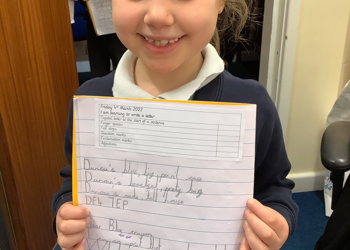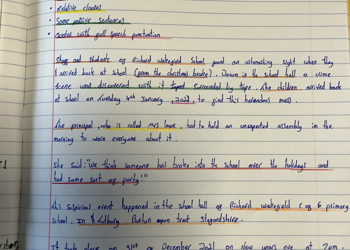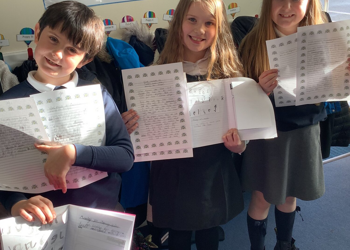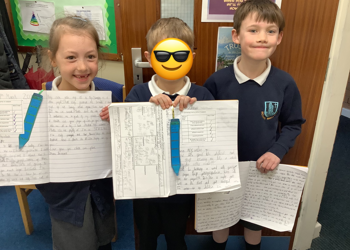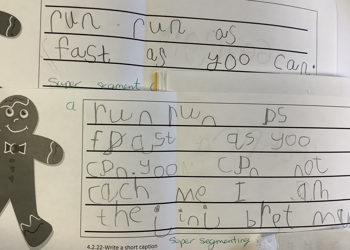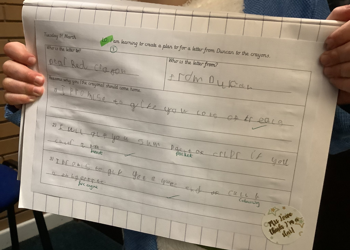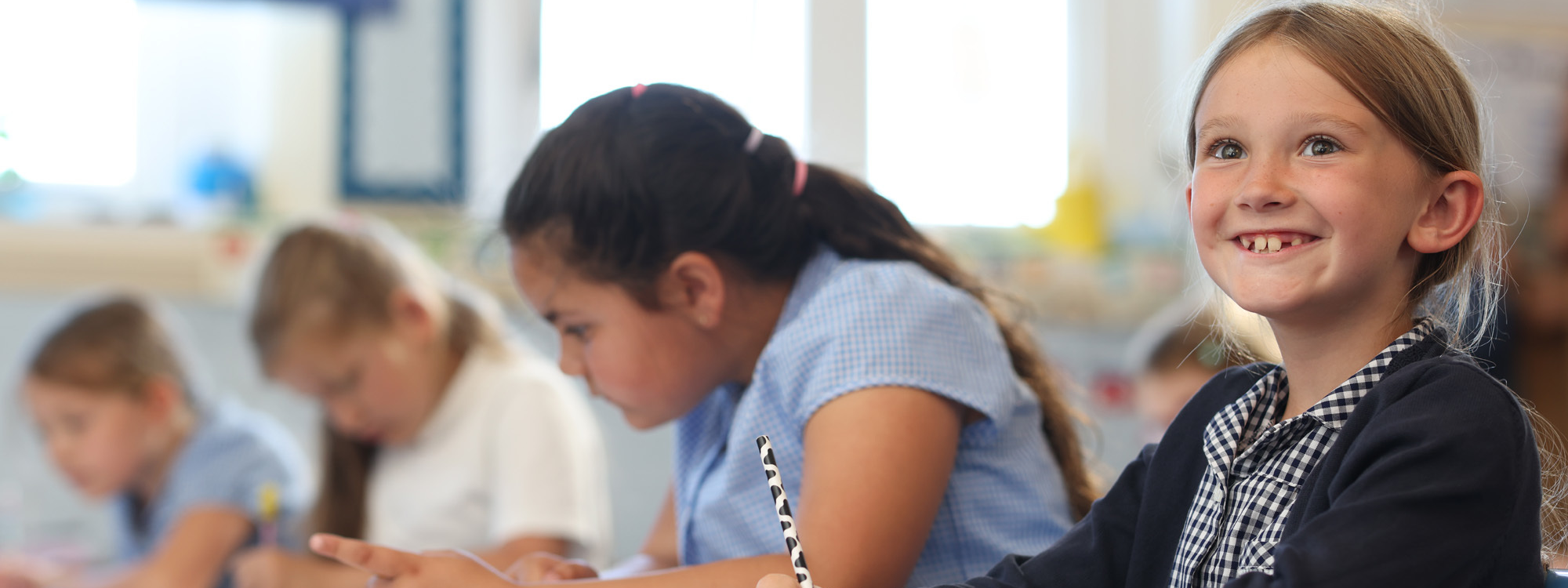Writing
Back to Subjects'You can make anything by writing' - CS Lewis
Writing Curriculum Design statement
Curriculum Intent
Writing, at Richard Wakefield, is important and embedded into every aspect of teaching and learning.'We breathe in Reading, to breathe out Writing'. We strive for our children to be equipped with the skills, knowledge and ability to be able to communicate through writing in all aspects of their lives and we aim to ignite a passion for writing. At Richard Wakefield, each year group has a progression of writing skills that must be taught and learnt. These skills are taken from the National Curriculum and cover the Grammar and Writing skills that must be taught throughout KS1 and KS2.Our children write for purpose, identifying the intent of their writing according to the text type. They are able to discuss the purpose and effect of the grammar and punctuation skills they use, carefully and deliberately selecting these in order to aid their overall work. .
Curriculum Implementation
Writing is planned using the class key text as focus and inspiration for grammar and writing skills. Vocabulary from the key text can be used to supplement high-level teaching at word-level, with children encouraged to use this in their own written work across the unit.Through the writing opportunities we give to the children, we ignite curiosity, further develop skills and engage learning.
Our writing curriculum was designed to link closely with reading. The two are inherently intertwined and key links are made between each. Children are encouraged to write with consideration to the reader and read while considering the effect the writer had intended.
Each individual class teacher is responsible for the planning of writing for their class in line with the National Curriculum expectations & our Richard Wakefield long term plan. Planning is completed for each session based on the needs of the children within the class and the next steps that are needed within their learning. At Richard Wakefield, English units are taught, with cross-curricular links made with other areas of the curriculum, as much as possible.
Our overall aim is for the children to ‘write for purpose’. The children carefully consider the purpose for the writing and use transferable skills in order to produce an effective piece, focusing on the impact this will have on the reader.
Medium term plans are used to guide short term planning and key, transferable skills are included. Purposes are repeated within and across year groups and this enables children to master the skills taught effectively through intelligent repetition.
In writing, pupils will be given ‘stars’ to praise their application of specific skills and vocabulary, and/or they will be given a ‘wish’ where the child will be given the next step in their learning. A full detailed mark consists of 2 stars and a wish - to recognize and praise the pupils’ progress over that unit and so that further progress can be made over the unit. All children are given a chance to respond to feedback (wishes) that has been given and children are encouraged to do this in purple pen during ‘polishing time’.
Writing is something that is celebrated across school and children produce their published work which is displayed beautifully to celebrate the writing process. At this point, presentation would be discussed within the class, with the children knowing that presentation should be of the highest quality.
Curriculum Impact
The overall aim of our writing curriculum is for children to be independent writers who are confident and able to use transferable skills within and across different genres of writing. Children should consider their purpose for writing carefully and adapt their writing style to suit the reader. We aim for our children to develop a love of writing and to continue to improve the key skills learnt in all aspects of life and education.
What does Writing look like at Richard Wakefield?
Writing for Purpose
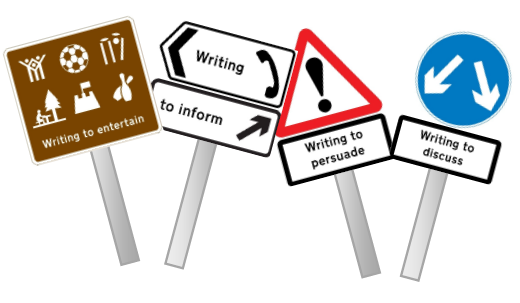
As a school, we develop writing through four distinct purposes. These are:
- writing to entertain;
- writing to inform;
- writing to persuade;
- writing to discuss.
The skills that children will develop include:
- spelling strategies and using a dictionary;
- using punctuation correctly and for effect;
- using grammatical knowledge to construct sentences, considering the effect and impact that these will have on the reader;
- handwriting for different purposes – using appropriate joins leading to a personalised style;
- planning, drafting, organising and editing their work.
Speaking and Listening
In order for children to become successful communicators, we provide opportunities for them to develop speaking and listening skills across the curriculum. These include:
- listening and responding to other people’s ideas and viewpoints;
- using language, including new vocabulary, to explore ideas and explain their thinking and feelings;
- participating in discussion, presentations, performances, role play and debate;
- consideration and awareness of the audience.
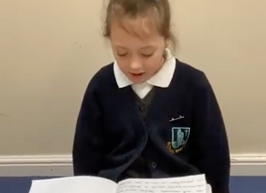 Click on the picture to hear how Y2 were using intonation, pace and expression to read their news reports in order to keep their readers entertained and informed!
Click on the picture to hear how Y2 were using intonation, pace and expression to read their news reports in order to keep their readers entertained and informed!
Please find our Cycle 1 Writing Medium Term Plans below:
Our children love to write at Richard Wakefield and are given plenty of opportunities across the curriculum to practise and display their writing talents.
